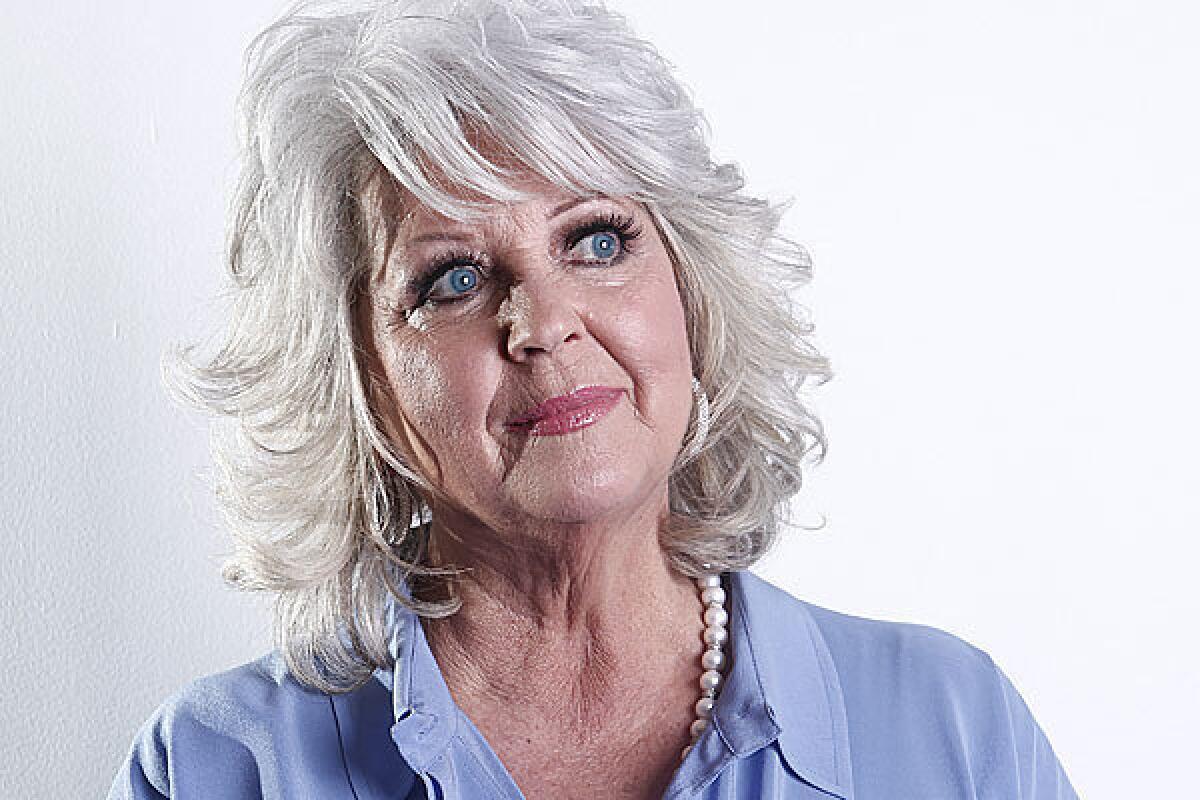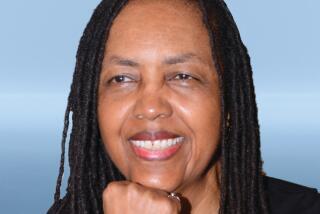Paula Deen: Clueless on race, blinded by family loyalty

If you want to get a good look at an unreconstructed Southern white lady whose reflexive racism and clannishness is about to destroy a very lucrative television career, check out the deposition everyone’s been talking about in the Paula Deen scandal.
The deposition is less notable for the Food Network maven and cookbook author’s admission that she has used the N-word (I’d be shocked if a 66-year-old woman from Georgia said she hadn’t ever used it) than it is for her cluelessness about race and about what constitutes appropriate workplace behavior and for her pathetic defense of an out-of-control brother.
In Deen’s family, blood is so much thicker than water that it has curdled her sense of reality, justice and shame. No wonder that the Food Network has announced it will dump her after her current contract expires in June, and that experts think her brand may be in deep trouble.
I never did understand the corn-pone appeal of Deen, whose cooking is a deep-fried denial of all that is healthy and fresh.
Also, I’m somewhat put off by people who dole out spoils of their success to their nearest and dearest — in her case, she bankrolled a restaurant for her brother, who apparently never encountered the concept that employment laws govern how a boss may treat his workers, and spawned cooking shows and other ventures for her offspring (sons Bobby and Jamie), who, thus far have avoided getting sucked into their mother’s buttermilk-battered mess.
(Her last bout of bad press turned on a health scandal: For three years, she kept her Type 2 diabetes diagnosis secret, while continuing to push the fatty, fried foods that can contribute to the disease’s onset. She only revealed her condition after signing a deal to hawk a diabetes drug.)
Right now, Deen’s embroiled in a $1.2-million lawsuit, filed in March 2012, by Lisa Jackson, a former general manager of Uncle Bubba’s Seafood and Oyster House, the Savannah restaurant co-owned by Deen and her brother, Earl W. “Bubba” Hiers.
Jackson alleges that Hiers was physically violent with employees, forced them to look at pornography, frequently arrived at work in a state of intoxication and subjected workers to racial and sexual harassment. His behavior, her suit says, was “physically threatening” and “universally humiliating.”
Jackson was hired as general manager in 2005 after the previous GM, a man, was fired for having a sexual relationship with an underage employee.
“If you think I have worked this hard to lose everything because of a piece of [vulgarity],” Deen admitted saying, “you better think again.” According to Jackson’s lawsuit, Deen added, “Now, I am going to do something I have never done: I am going to put a woman in a man’s job.”
Jackson said that over the course of her five-year employment Hiers called her “my little Jew girl.” She also alleges that black restaurant employees were required to use the restaurant’s rear door and, unlike white employees, were not allowed to use the customer bathrooms.
But perhaps her most explosive claim is one we’ve all read about by now.
When Deen was planning her brother’s 2007 wedding, she put Jackson in charge. Jackson alleges that when she asked how the wait staff should look, Deen replied: “Well, what I would really like is a bunch of little [derogatory racial term] to wear long-sleeved white shirts, black shorts and black bow-ties, you know, in the Shirley Temple days, they used to tap dance around. That would be a true Southern wedding. But we can’t do that because the media would be on me about that.”
In her May 13 deposition, which was first reported by the National Enquirer, Deen admitted to using the N-word in the past but denied using it during that conversation, insisting she used the word “black.”
“I try to go with whatever the black race is wanting to call themselves at each given time,” she explained, though she acknowledged that having an all-black staff wait on wedding guests hearkened back to another era.
“What era in America are you referring to?” asked Jackson’s attorney, Matthew Billips. “Well, I don’t know,” Deen replied. “After the Civil War, during the Civil War, before the Civil War.”
“And before the Civil War, those black men and women who were waiting on white people were slaves, right?”
“Yes,” said Deen. “I would say that they were slaves. ... But I did not mean anything derogatory by saying I loved their look and their professionalism.”
Over the course of 149 pages, Deen reveals herself as a clueless big sister and businesswoman owner, casually racist and disengaged from the business because of her other obligations. She is blinded by affection for her little brother, whom she took in at age 16 after their parents died. It’s a metastatic kind of love, unfortunately, as it allowed the brother’s toxic behavior to tarnish their business and ultimately, her reputation.
When Jackson’s attorneys asked whether Deen was aware her brother had undergone rehabilitation for alcohol and cocaine addiction, she replied that it was “not his problem but his wife’s problem. He felt the right thing was to go with her.”
When asked about her brother’s alleged poor work habits, she said, “My brother is completely capable unless he’s being sabotaged.”
But Deen admitted that after her brother was caught taking money from the restaurant, as much as $26,000 a month, he received a pay increase and the money he took was recharacterized as wages.
When Jackson’s attorney asked Deen whether she knew that consultants hired to study the company’s operations reported that Jackson had “fodder for an EEOC complaint,” Deen replied “It was Lisa’s mouth that was doin’ the talking so I’m sure they came to that conclusion.”
On Friday, Deen canceled an appearance on the “Today Show,” then posted a couple of rambling, apology videos online in the afternoon. She said she had not been well enough to appear on “Today,” and I believe her. In the videos she looks like an emotional mess. She has promised to appear on the show Wednesday, when, presumably, she will have rehearsed a full-throated appeal for mercy.
I’m not especially invested in her career, or the outcome of this scandal, though many of her fans seem to be in a forgiving mood.
The saddest thing in all this is that despite being one of the Food Network’s biggest stars, and by extension, one of the country’s biggest TV stars, Paula Deen has been able to operate in an anachronistic bubble of white Southern privilege.
She and her brother need to be reminded: Just because you employ someone doesn’t mean you can treat them like a slave.
ALSO:
Lawsuit threatens San Diego’s politically incorrect beach bash
Heat wave to hit Southern California late this week, forecast says
Colleges nationwide may look at California’s affirmative action plan
Twitter: @robinabcarian
More to Read
Sign up for Essential California
The most important California stories and recommendations in your inbox every morning.
You may occasionally receive promotional content from the Los Angeles Times.











